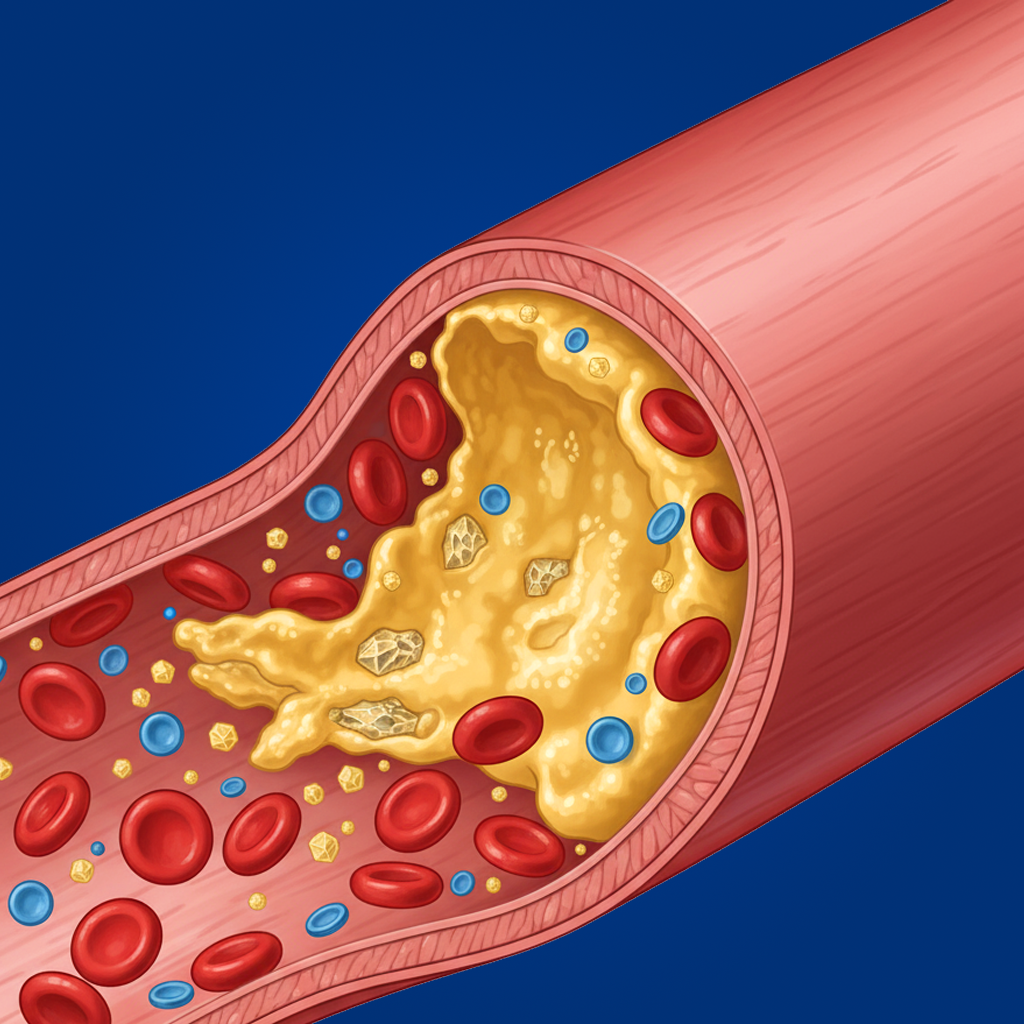Dyslipidemia Problems
Dyslipidemia is an imbalance of blood lipids—high LDL (bad cholesterol), high triglycerides, or low HDL (good cholesterol)—that silently increases the risk of heart attack, stroke, and fatty liver. Early screening, lifestyle correction, and targeted therapy can normalize lipids and protect the heart.
Dyslipidemia
Dyslipidemia is an abnormal level of lipids in the blood like High LDL cholesterol, High triglycerides (TG), Low HDL cholesterol, and Elevated non-HDL cholesterol and ApoB. Untreated dyslipidemia accelerates atherosclerosis (plaque build-up in arteries), leading to coronary artery disease, stroke, peripheral artery disease, pancreatitis (with very high TG), and metabolic dysfunction–associated fatty liver disease.

Symptoms and Signs
Dyslipidemia is usually silent. Many discover it on routine tests. When present, signs may include:
Common Symptoms
- Chest discomfort, breathlessness on exertion
- Fatigue, reduced stamina
- Xanthelasma (yellow eyelid patches), xanthomas (fatty skin deposits)
- Abdominal obesity, increased waistline
- Eruptive skin lesions with very high triglycerides
Seek urgent care if chest pain, jaw/arm pain, sudden weakness, or slurred speech occurs.
Book Your Appointment Today!
We have 14 clinics and 20+ doctors in India
Choose a clinic near you or do online consultation
- +91 8289821234
- Our Team
- Booking Page
Latest articles on Dyslipidemia or Cholesterol
Stay informed with Dr. Manoj Johnson’s expert perspectives on lipid disorders. From genetic causes and advanced therapies to dietary strategies and integrated care for diabetes, these updates deliver concise, actionable guidance to help you manage cholesterol, triglycerides, and overall cardiovascular health.
Videos on Dyslipidemia or Cholesterol
Watch Dr. Manoj Johnson break down complex lipid topics into clear, engaging videos. Learn about cholesterol testing, lifestyle interventions, novel therapies, and tailored care strategies to take control of your heart health—one visual lesson at a time.

